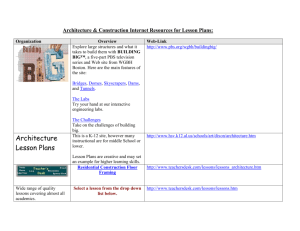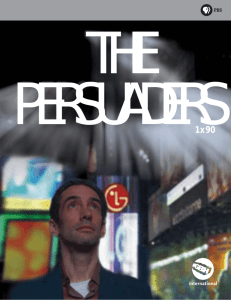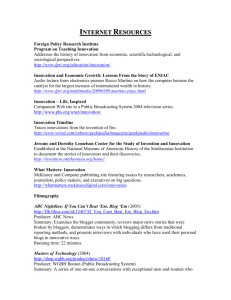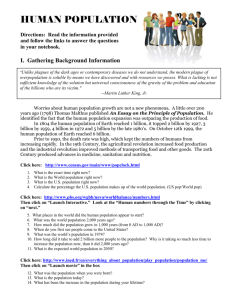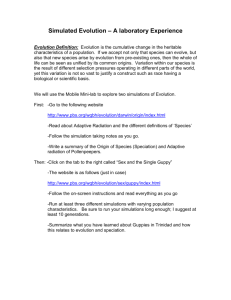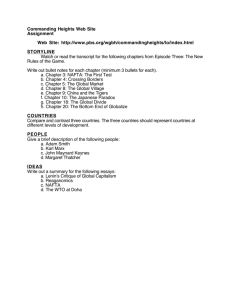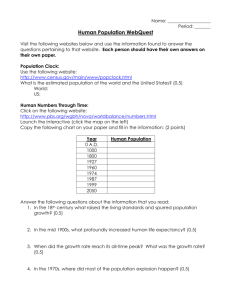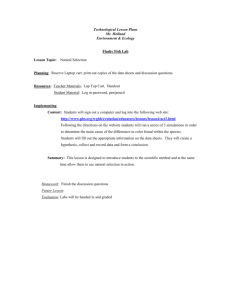Style, Usage, Tone, Voice
advertisement
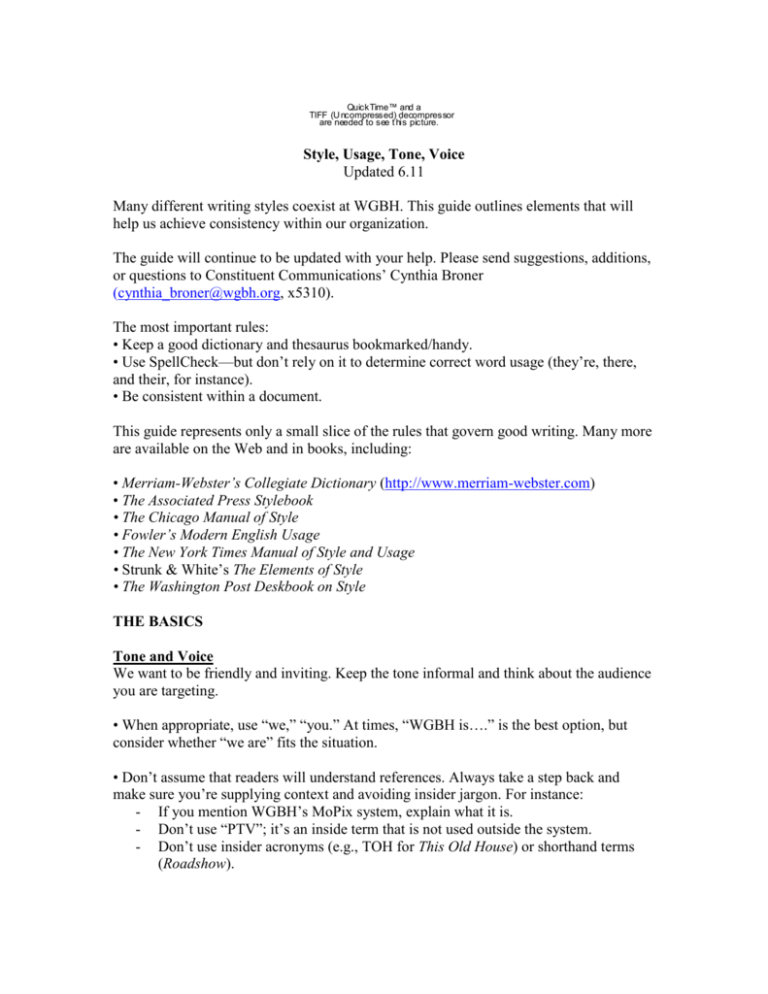
QuickTime™ and a TIFF (U ncompressed) decompressor are needed to see t his picture. Style, Usage, Tone, Voice Updated 6.11 Many different writing styles coexist at WGBH. This guide outlines elements that will help us achieve consistency within our organization. The guide will continue to be updated with your help. Please send suggestions, additions, or questions to Constituent Communications’ Cynthia Broner (cynthia_broner@wgbh.org, x5310). The most important rules: • Keep a good dictionary and thesaurus bookmarked/handy. • Use SpellCheck—but don’t rely on it to determine correct word usage (they’re, there, and their, for instance). • Be consistent within a document. This guide represents only a small slice of the rules that govern good writing. Many more are available on the Web and in books, including: • Merriam-Webster’s Collegiate Dictionary (http://www.merriam-webster.com) • The Associated Press Stylebook • The Chicago Manual of Style • Fowler’s Modern English Usage • The New York Times Manual of Style and Usage • Strunk & White’s The Elements of Style • The Washington Post Deskbook on Style THE BASICS Tone and Voice We want to be friendly and inviting. Keep the tone informal and think about the audience you are targeting. • When appropriate, use “we,” “you.” At times, “WGBH is….” is the best option, but consider whether “we are” fits the situation. • Don’t assume that readers will understand references. Always take a step back and make sure you’re supplying context and avoiding insider jargon. For instance: - If you mention WGBH’s MoPix system, explain what it is. - Don’t use “PTV”; it’s an inside term that is not used outside the system. - Don’t use insider acronyms (e.g., TOH for This Old House) or shorthand terms (Roadshow). - Exception: If you’ve used Antiques Roadshow in a piece, it’s OK to use Roadshow in a later reference (more on this below). Don’t reference “the Foundation” (more on this below). Titles WGBH’s Constituent Communications department italicizes all program titles and uses uppercase initials only, followed by lowercase (Nova, not NOVA) to avoid such up-anddown sentences as “WGBH is the source of Arthur, ZOOM, Between the Lions, FRONTLINE, and The World.” Productions, of course, do as they wish in their own materials (press releases, websites, etc.). Exceptions: • in QuickNooz, where WGBH’s own productions are capitalized to set them apart from other productions • on wgbh.org, where bold is the norm, not italics • if italicizing is not an option and capitalization is the only way to set the title apart Use upper/lowercase and italics for series titles, program titles within a series, and episode titles. A Celtic Sojourn Frontline’s Breaking the Bank or Frontline: Breaking the Bank Nova’s Arctic Passage Masterpiece Mystery!: Miss Marple Note: • Program titles from other producers may reflect styles other than those listed in this guide (for instance, Fabulous 50’s). In that case, we use the title as is (“coming up” messages on the air, in our members’ magazine, on wgbh.org, etc.). Song titles and exhibition titles are roman, in quotation marks: • “The Star-Spangled Banner” • “Titian, Tintoretto, Veronese: Rivals in Renaissance Venice” at the Museum of Fine Arts Artwork titles are in italics: van Gogh’s Wheat Field with Crows Do not use quotation marks or italics for classical works: • Mozart’s Sinfonia Concertante in E-flat Exception: If a multi-part classical work, such as an opera or a ballet, has a “songlike” name, italicize it: • Bizet’s Carmen • Handel’s Messiah First use always should reference the complete program title (Antiques Roadshow, etc.). If a title is used frequently thereafter within a piece, titles may be shortened (Roadshow) if that’s a familiar usage outside WGBH. Avoid insider jargon such as TOH, AmEx. WGBH Channels Use the correct designations for our channels, which take advantage of the positive associations with the WGBH brand: TV WGBH 2 WGBH 44 WGBH World WGBH Create WGBH On Demand ’GBH Kids (also: Boston Kids & Family) Radio 89.7 WGBH, Boston’s NPR® Station for News and Culture 99.5 All Classical WCAI, the Cape & Islands NPR® Station Web wgbh.org If a channel is being used repeatedly, the “surname” may be used alone after the first use of the full channel name (e.g., first use WCAI, the Cape & Islands NPR® Station; thereafter, WCAI). Note: Longtime viewers still may say “Channel 2”; we shouldn’t. Use WGBH 2. WGBH WGBH’s licensed name is WGBH Educational Foundation. Internally we talk about “the Foundation.” However, this is not a familiar term outside WGBH, and it can be confusing: foundations give away money; we seek it. So avoid “the Foundation” except where required. Stick to WGBH. WGBH vs. Departments The tendency within WGBH is to talk about specific departments rather than the institution. In general, guard against this: WGBH is the largest supplier of Web content to pbs.org. (rather than WGBH Interactive is…) Programs vs. Productions Using “productions” when talking about programs we create underscores the homegrown nature of the show, as opposed to programs we acquire for broadcast. WGBH productions such as Arthur Sesame Street and other WGBH programs Programs vs. Programming Outside the media world, folks think about programs, not programming. Use the former rather than the latter. Pledge your support for the programs you enjoy on WGBH 2. Children vs. Kids Best choice depends on usage. “Children” is more formal and often preferable when talking about educational media. “Kids” is more colloquial and may seem more natural in a quote, or as an alternative to avoid overuse of “children.” WGBH is a leader in children’s television, and millions of parents and kids rely on us for education and entertainment. Avoiding Bias WGBH is committed to avoiding bias on our air and in our writing and publications. That means: • Steer clear of sexism, racism, ageism, or any other -ism. • Don’t hyphenate such terms as African American or Korean American, whether as adjectives or nouns. • Respect current preferred terms (“people with disabilities” vs. “handicapped”). • Put the emphasis on people (“people who are blind” vs. “the blind”). • Make sure that text and images are inclusive. For a full discussion of these issues, consult A Guide to Bias-Free Communications at WGBH: innertube.wgbh.org/index.php?option=com_content&task=view&id=107&Itemid=29 MORE TIPS Abbreviations WGBH style is no periods in abbreviations. US PhD DVS Use periods in initials for names (P.G. Wodehouse), except when expressly not used by the individual (M Howard Jacobson). Acronyms Spell out most acronyms on first use, then you can use the acronym on second use: …at the Federal Communications Commission. Nevertheless, the FCC decided… More formally, handle this way: …at the Federal Communications Commission (FCC). Nevertheless, the FCC decided… If the acronym is in the dictionary (aka, AIDS, CEO, HMO, LP, CD-ROM), then do not spell out on first use. Certain organizations (WGBH, AARP, TDK) are known by their acronyms, so do not spell out. Ampersand Unless an ampersand is part of a title, generally write out “and.” Sound & Spirit jazz and classical Apostrophe Use Smart Quotes style (the “curly” kind of apostrophe/quote: ‘/’, “/”). Make sure the apostrophe goes in the right direction: ’09, ’GBH. Our channel numbers carry the full WGBH name. In talking to our local audience, we sometimes use ’GBH (“Here at ’GBH, we’re putting your membership dollars to work”). The apostrophe can provide a familiar, insider feeling; when used appropriately, it says you know us well enough to call us by our nickname. But we want to capitalize on the equity of the WGBH brand wherever we can. S’ vs. S’s WGBH style is PBS’s (as opposed to PBS’), CBS’s No apostrophe for plurals except when essential for clarity. PhDs CD-ROMs YMCAs The Smiths A’s and B’s ’50s (for 1950s), not 50’s ’n’ (for and): rock ’n’ roll Proper names can be tricky. When in doubt, check a good stylebook. Ken Burns’s Jazz BUT in Jesus’ name Capitalization Capitalize top-tier professional titles when they precede the person’s name. Lowercase the title when it follows the person’s name: WGBH President Jon Abbott Jon Abbott, president of WGBH Capitalize the “R” in WGBH Radio when talking about our formal service, but lower case the “r” when talking about the medium: All the great WGBH content you enjoy on TV, radio, and online… Cities A city must include its corresponding state/country. Whether or not you spell out the state (York, ME vs. York, Maine) depends on the context, preferred style of the piece, formality of the writing, etc. Again, be consistent within the communication. Exceptions: Many cities can stand alone without state or country name. For example: Atlanta Baltimore Boston Chicago New York London Paris Tokyo Cairo Use full state name if it’s used alone: Idaho (He was born in Idaho vs. He was born in ID.) Comma The serial comma is preferred, for clarity. Again, consistency within a communication is key. John, Mary, or Joe Moe, Larry, and Curly If a sentence has two different subjects, separate those two parts with a comma: The Northeast had no electricity for a day, so people sat on their stoops and got acquainted with their neighbors. (“Northeast” is the subject of the first part, and “people” is the subject of the second part.) If both parts of the sentence are short, then you can forgo the comma: The checks bounced and the dog died. Add a comma after state and year: I was born in Flushing, NY, on May 25, 1963, at 4:40pm. However, no comma when month plus year or season plus year: April 2006 BUT April 4, 2006 Fall 2006 Dashes The common dash—used to mark an abrupt change in the structure of a sentence or to add parenthetic elements—is called the em dash because it is the width of a capital M. In typewriting, this dash is generally represented by two hyphens (--). Word processing automatically converts this to —. Do not add spacing around this dash. Colon vs. Em Dash The em dash is greatly overused. A colon, not a dash, is the correct choice for the following sentence: WGBH is PBS’s premier producing station: Nova, Frontline, Arthur, Antiques Roadshow, Masterpiece, and many other favorites are “produced in Boston, shared with the world.” Dates Whether or not you abbreviate a month (January 2 vs. Jan. 2) depends, again, on context, formality, etc. Be consistent. Always spell out a month if no date follows: January 2010. Note below that all the months that always get spelled out are lumped together: March, April, May, June, July. Use cardinal numbers (24 vs. 24th): Tune in Thursday, April 25, 9-11pm Use BCE and CE rather than BC and AD. e.g. vs. i.e. e.g. means “for example”; use it when you’re providing only a sampling of a long list: He enjoys WGBH’s productions, e.g., Jazz on WGBH with Eric Jackson, Greater Boston, and Between the Lions. i.e. means “that is”; use it when you’re supplying the complete list: He enjoys the media access services on WGBH 2 and WGBH 44, i.e., DVS and captioning. Remember to use a comma after either one. Headlines/Titles All words in headlines and titles are initial capital letters except articles (e.g., the, an, a) conjunctions (e.g., and, but, or) prepositions of four or fewer letters (e.g., like, with, of) The first and last word of a title also begins with an initial cap even if it falls into one of the above categories: In the Kitchen with Julia and Jacques Note that “Is,” “Are,” and “That” should be capitalized in titles and often erroneously are not: Where in the World Is Carmen Sandiego? If a title is contained within a title, distinguish the interior one with Roman type: Smothered: The Censorship Struggles of The Smothers Brothers Comedy Hour Hyphenation Use hyphens to: • make clear the unifying sense in compound expressions such as punch-drunk, costbenefit analysis, or weight-carrying, or compounds in attributive use (that is, in front of the noun), as in an up-to-date list • join a prefix to a proper name (e.g., anti-Darwinian) • avoid misunderstanding by distinguishing phrases such as twenty-odd people and twenty odd people, or a third-world conflict and a third world conflict • clarify the use of a prefix, as in recovering from an illness and re-covering an umbrella • represent the use of a common element in a list of compounds, such as four-, six-, and eight-legged animals • divide a word across a line break Examples of hyphen vs. no hyphen: fastest-growing segment of the population on-air promotion vs. She is on the air. an up-to-date memo vs. This memo is up to date. a first-class seat vs. We sat in first class. real-life stories vs. She is a mom in real life. high-definition TV vs. This program was filmed in high definition. Exceptions: If an adjectival phrase is composed of a noun + noun, do not hyphenate: database management system (“database” and “management” both are nouns) home improvement program Hyphens never follow “very” or adverbs ending in -ly: visually impaired members highly organized team very good girl Attach most prefixes and suffixes to their root word without a hyphen: lineup citywide twofold preeminent reenactment childlike miniseries If the root word is capitalized, use a hyphen after the prefix: pro-American Some suffixes do take a hyphen (follow Merriam-Webster’s): tie-in start-up Use hyphens in double-“I” and triple-“L” constructions: anti-imperialist anti-inflation multi-instrumentalist shell-like Hyphenate adjectival use: Two-year-old boy He is two years old. On-air promotion She is on the air. In numerical range, space follows the first hyphen: 12- to 14-year-olds Sometimes sense governs whether or not to use a hyphen: recreate (enjoy oneself) vs. re-create (form anew in the imagination) recover (regain) vs. re-cover (cover again) reform (improve) vs. re-form (form again) resign (quit) vs. re-sign (sign again) Hyphenate “prime-time” as an adjective (“our prime-time programs”); two words as noun (“broadcast during prime time”). Note, however, that the official name of the NATAS award is the Primetime Emmy, so reflect that usage when writing about the award. See Word Treatment for more hyphenation issues. Italics Italicize opera titles, books and magazines, plays, etc. Song titles are in quotes. Verdi’s Stabat Mater The New Republic Sinatra’s “My Way” Artwork titles are in italics: van Gogh’s Wheat Field with Crows Non-English phrases that are not a familiar part of the lexicon are in italics. searching for le mot juste Ship names are in italics. the Titanic Live Performances For in-studio performances, use “live” to indicate a performance that is being broadcast as it is occurring. After the fact, the performance should be referred to as an “in-studio performance.” Numbers Write out numbers below 10, except when they begin the sentence. Use numerals for 10 and higher. But be consistent within a sentence; don’t both spell out and use numbers: broadcasting 24 hours a day a series for two- to six-year-olds a series for 2- to 11-year-olds Note the following Episode 2; Hour 1; Part 4 Act 3 World War I, World War II early 19th-century ceramics Fifth Avenue Thousands: Use a comma to distinguish a number from a year: In 1991, there were 1,991 births in the region. For percentages, use numerals and percent symbol, even at the beginning of a sentence: 25% of our members give money every year. For millions and billions, use numerals except for casual use: China has more than 1 billion citizens. The budget is $5.5 million. This is a $10 million-a-year job. There are a billion stars out tonight. Keep the “million” in the first part of a range: We hope to pull in $2 million to $4 million (vs. We hope to pull in $2 to $4 million). Years: It’s OK to begin a sentence with a year: 1998 was a great year for California cabernets. Periods Omit periods in a bulleted list unless the list is made up of full sentences separated by commas or semicolons. WGBH is a vibrant part of the community it serves, with • television and radio broadcasts • a rich website • music performances • events WGBH is a vibrant part of the community it serves: • Millions of viewers and listeners enjoy our television and radio broadcasts. • Our rich website is a favorite destination on the Internet. • Music performances showcase local talents. • Our events offer fun and entertainment. Spelling Generally, use first spellings listed in the dictionary. For example: OK adviser backward catalog descendant dietitian flutist french fries Hanukkah health care longtime matzo mind-set omelette rain forest timesaving toward T-shirt under way However: kebab NOT kabob Kwanzaa NOT Kwanza lychee NOT litchi Sichuan NOT Szechwan Timbuktu NOT Tombouctou States See Cities Telephone Numbers Hyphenate phone numbers: 617-300-2000 If, for style, you prefer periods or parentheses around the area code, stick with that style. Consistency within a document is the rule. Times WGBH style is to lowercase am/pm No space between numerical time and am/pm No periods in am/pm No :00 if on the hour 10:30pm 10am To specify the running time of a stream, clip, podcast, Forum lecture, etc., use minutes:seconds or hours:minutes:seconds, as appropriate: 23:30 2:31:00 5:15 TV vs. Television May be used interchangeably. “Television” sounds more lofty, so if you’re talking about the educational potential of the medium, choose that. Verbs As a general rule, keep compound verbs together, rather than separating by adverbs: also are used NOT are also used frequently is seen NOT is frequently seen Viewers When appropriate, remember to include the wider WGBH audience to underscore the more-than-TV nature of WGBH: our viewers, listeners, and Web visitors Word Treatments the WGBH Auction the Auction co-chair digital TV DTV dot-com email e-bulletin e-newsletter fundraiser fundraising high-definition TV (BUT broadcast in high definition) homepage hotlink how-tos Internet intranet (BUT InnerTube) lineup login online WGBH member WGBH membership MemberCard miniseries the Net pbs.org public broadcasting (vs. Public Broadcasting Service) public radio public television TV vice chair vice president the Web webcast webmaster webpage website World Wide Web wgbh.org The following are ripe for error (trust us): WGBH (watch out for WBGH) PBS stands for Public Broadcasting Service (not System)Juilliard Norm Abram (not Abrams) Sarah Vaughan (not Vaughn) Katharine Hepburn (not Katherine) Pharoah Sanders (BUT the pharaohs of Egypt) public broadcasting (watch out for pubic) sneak peek Public radio has two main program distribution sources: NPR and PRI. Be careful not to mislabel all public radio programs as NPR. Beware of confusion among the following: • complementary (companion) vs. complimentary (flattering) the TV series and its complementary website vs. her comments were most complimentary • more than vs. over Use “over” for measurements (over 12 feet), “more than” for quantity (more than 400 films) • premiere (debut) vs. premier (first, best) the series will premiere in June vs. WGBH is PBS’s premier producing station “Quality” sometimes is used as an adjective. It isn’t one. Stick with high-quality, topquality, low-quality, etc. Beware of the phrase “turn of the century.” Make explicit which century you mean. Which vs. That Whole chapters have been written about this. When in doubt, check a good stylebook. General distinction: “The river that flows through London is the Thames” vs. “The river, which is very wide, flows through London” (if it needs a comma, it should be “which”). Who vs. That “Who” is for humans (the women who attended). “That” is for animals (the cat that licked its fur), companies, etc. Who vs. Whom, Me vs. I “Who” and “I” are subjects (doers of the action); “whom” and “me” are objects (receivers of the action). Check a good stylebook when in doubt. Questions? Additions? Suggestions? Contact Constituent Communications’ Cynthia Broner (x5310, cynthia_broner@wgbh.org).
